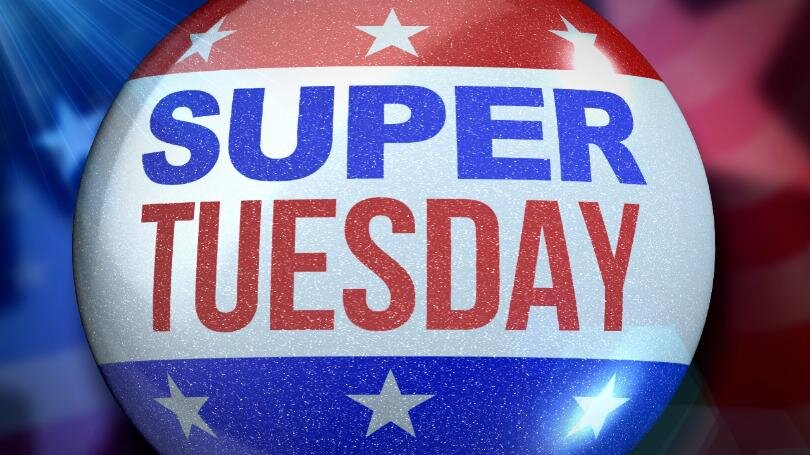
Three U.S. political axioms: African-Americans on average are more religiously devout than whites.
African-American Protestants pretty much determine who can win the Democratic presidential nomination and certainly boosted Joe Biden on Super Tuesday.
Black enthusiasm and turnout are all-important for the party’s prospects in any November.
Then look at the Democrats’ two geezers. Former Vice President Joe Biden is sometimes befuddled, but he’s an appealing, old-shoe churchgoer (also pro-abortion-rights and he performed a wedding for two men, but who would still be the first Catholic president in 57 years). Sen. Bernie Sanders (a socialist independent, not a Democrat!) would be the first ethnic Jew in the White House, but would surpass Donald Trump as the nation’s most secularized chief executive.
Sanders swept non-religious Democrats in New Hampshire and South Carolina, then bombed with Sunbelt African-Americans, many of whom frequent churches.
Are there any faith-based dots here for pundits to connect?

The improbably rich Michael Bloomberg quit to back Biden — while at this writing Sanders’ ideological soulmate Sen. Elizabeth Warren stubbornly remained in the fray. (Update: She dropped out this morning, after this memo was posted.)
But pundits assure us it’s Biden vs. Sanders to the bitter end.
Let’s leap past their contest and look at President Trump’s re-election chances.
The first reality is that most of Biden’s Super Tuesday turf is automatically red or blue and won’t matter in the upcoming scramble for 270 electoral votes. Though relatively ignored, and overshadowed by Trump’s manifest problem with women voters, the religion factor could tilt a close election in the few swing states that really matter and also affect control of the Senate, the House and the state legislatures that will redraw district lines next year.
With African-Americans, Asian-Americans and Hispanic Catholics so wedded to the Democrats, it’s white voters who will be up for grabs. (But keep an eye on Latino evangelicals and Pentecostals in Florida.)
The scenario is quite simple for thinkers like Kevin Baker of Harper’s magazine. He tells us “white America votes for those candidates it believes are most likely to keep people of color ‘in their place’ — either outside the country altogether, or in the most servile and subordinate condition possible within it.”
But let’s assume white voters are not a horde of irredeemable racists as deplored by left-wingers and matters are more complex. If so, we can learn much from the Public Religion Research Institute’s weekly polling throughout 2019 that amassed a vast sample of 53,474 (.pdf here), allowing good breakdowns by religion.
PRRI didn’t ask about voting plans but instead favorable vs. unfavorable ratings on Trump that provide clues to his fate. He posted a weak average favorability of 41% in these samples. He did better with white evangelicals at 64%, but that compares with their 81% support in 2016 exit polls (consistent with their Mitt Romney support in 2012). Similarly, white Catholics were 49% favorable compared with 2016 Trump support of 59%. (“Mainline” Protestants were 48% favorable. Hispanic Catholics were only 25% favorable with black Protestants at a dismal 18%.)
Does that show a Trump slide?
Given the importance of lopsided white evangelical voting for Republicans, the following favorable numbers for sectors of evangelicals hint softness that could fall short of what’s needed: women at 59%, ages 18-29 at 57%, ages 30-49 at 55% and college graduates 61%.
Meanwhile, people with no religious affiliation (“nones”) are around a fourth of Americans and the biggest sector of the Democratic coalition looked at in religious terms. They were only 32% favorable toward Trump and would be nominee Sanders’ secret weapon — but may be hard to locate and organize and less likely to donate.
Media sidelight one: Bloomberg’s thoroughly secular Jewish identity aside, he would have made further history as the first president living in the White House with an unwed partner. The 2020 Jewish angle brings to mind editor Harry Golden’s quip when Republicans nominated Barry Goldwater in 1964: “I always knew the first Jewish president would be an Episcopalian.”
Media sidelight two: Mayor Pete Buttigieg, who like Sen. Amy Klobuchar has a future, has already won a footnote in history as the first major candidate in a same-sex marriage. This articulate Episcopalian personified perennial — but frustrated — hopes a Democratic nominee can finally rally a liberal religious movement to counterbalance the “religious right.” Voters who paid close attention knew that a President Buttigieg would want to strip tax exemptions from religious colleges and social-service agencies that oppose gay marriage. Does that preach in black churches?
Media sidelight three: Rep. Tulsi Gabbard was not only the first Hindu to make a decent run but the first of Samoan heritage. However, Bloomberg carried American Samoa, as with Warren losing her home state.










